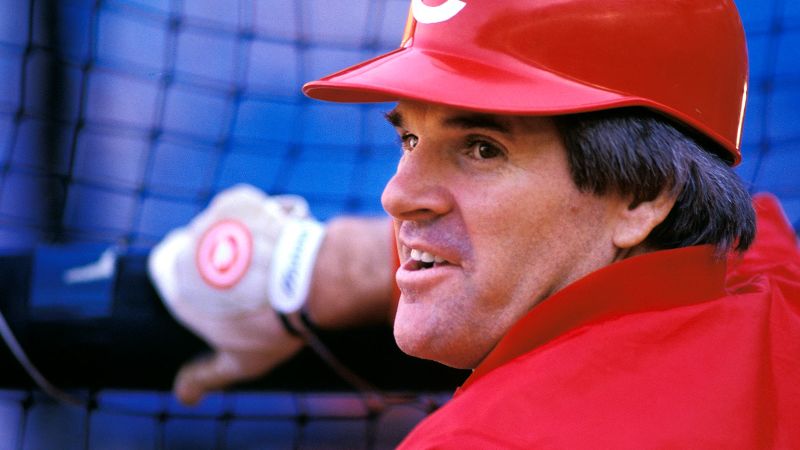
Pete Rose, Major League Baseball’s all-time hit king, has died at 83
CNN
Pete Rose, Major League Baseball’s all-time hit king and the Cincinnati Reds icon whose signature gritty hustle couldn’t outpace the gambling transgressions and obfuscation that kept him out of the National Baseball Hall of Fame, has died, according to a spokesperson for the Clark County Office of the Coroner/Medical Examiner in Nevada. He was 83.
Pete Rose, Major League Baseball’s all-time hit king and the Cincinnati Reds icon whose signature gritty hustle couldn’t outpace the gambling transgressions and obfuscation that kept him out of the National Baseball Hall of Fame, has died, according to a spokesperson for the Clark County Office of the Coroner/Medical Examiner in Nevada. He was 83. Rose was one of baseball’s greats – a winning-obsessed sparkplug who topped MLB’s all-time hit list with 4,256 over a 24-season career. He stood out for his all-in effort, sliding head-first and running even when a pitcher walked him – a style that earned him the nickname, first derisively, then admiringly, “Charlie Hustle.” He played for three World Series champion teams – the Reds’ stacked “Big Red Machine” roster in 1975 and 1976, and the Philadelphia Phillies in 1980 – was voted to the National League’s All-Star team 17 times, and won both the National League Rookie of the Year award (1963) and the Most Valuable Player award (1973). But his gambling on his own team – and his denials – ended his budding baseball managerial career and kept the sport’s most prolific hitter from enjoying its highest honor. MLB hired a lawyer to investigate Rose in early 1989 after it received reports he bet on MLB games. MLB’s Rule 21 says personnel who bet on games in which they have a “duty to perform” will be declared permanently ineligible. Lawyer John Dowd’s report concluded Rose bet on the sport, including Reds games – in 1985 and 1986, when he was both a Reds player and the team’s manager, and 1987, when he was just the manager. Commissioner A. Bartlett Giamatti banned Rose from baseball for life in August 1989, and said he could apply for reinstatement after one year after demonstrating a “redirected, reconfigured, rehabilitated life.”











